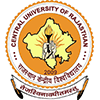The scaled scores calculated in NMAT by GMAC are calculated based on the raw scores which are based on the candidates' performance in modern exam theory.
Table of Contents
The NMAT by GMAC exam score is calculated by first obtaining the candidate's final ability estimate based on the probabilistic model approach of modern exam theory, and then transforming it into a scaled score ranging from 12 to 120.
The raw test scores are placed on a common scale. This process is followed to ensure that the scores are comparable across various test forms and are not impacted by different candidates getting different test forms.
The questions a candidate receives are targeted at his/her ability level. Therefore, a high-scoring candidate generally receives a more difficult sample of questions than a low-scoring candidate. Students wondering how are scaled scores calculated in NMAT 2025 by GMAC can check out this article for more details.
How are NMAT Scores Calculated?
Once the NMAT exam is completed, an unofficial scorecard will be displayed on the screen. Post 48 hours after the test completion, the candidates also receive an email alert indicating that the official NMAT scorecard is available for download from the candidate dashboard. The official scorecard is designed based on scaled NMAT scores:
| Sections | Time (in mins) | Number of Questions | Score Range |
| Language Skills | 28 | 36 | 12-120 |
| Logical Reasoning | 40 | 36 | 12-120 |
| Quantitative Skills | 52 | 36 | 12-120 |
| Total | 120 | 108 | 360 |
The questions in the computer-based NMAT are unique to each student and tailored to his/her capability. The questions are selected for each aspirant based on their answers to a previously asked question from a pool of questions.
Consequently, a high-scoring examinee generally will receive a more difficult sample of questions as compared to a low-scoring examinee. The number of questions, time limits, and difficulty levels for every section are established early on and are the same irrespective of when and where the test is administered.
Read More: NMAT Passing Marks 2025
What is NMAT Percentile Score?
Percentile scores in NMAT are like scale meters that show a particular candidate’s performance in comparison to the total number of candidates who have appeared for the NMAT exam.
It provides essential information like passed candidates, the number of candidates who appeared for the exam, the possible cut-off of the exam, and more. For example: if a candidate secures 80th rank, then it means that the candidate has scored 80% better than other NMAT test takers.
Read More: NMAT Normalisation Process
What is NMAT Scaled Score?
The raw test scores are equated and placed on a common scale to rule out any difficulty in the overall calculation of the NMAT score. This process done by GMAC ensures that scores are comparable across test forms and are not impacted by candidates opting for different test forms.
It ensures that every candidate goes through a fair scaling process despite having received a different question pool.
NMAT Score vs Percentile
NMAT aspirants looking for admission to NMIMS Mumbai are always interested in comparing NMAT score vs percentile with a particular interest in the NMAT cut-off 2025. Shown below is a fair idea about NMAT score vs percentile that will help students get an idea of what is a good score in NMAT 2025:
| NMAT Accepting Colleges | Cutoff Score/ Percentile |
| All NMIMS Campuses | 200+ score |
| Indian School of Business (ISB) | 140+ score |
| Xavier University | HRM (85+ percentile), RM (50+ percentile) |
| SDA Bocconi | 200+ score |
| Alliance University | 100+ score |
| ICFAI Business School | 150 + score |
| BSE Institute Limited | 180 + score |
| Woxsen School of Business | 160 + score |
| Amity University | 60 + percentile |
NMAT Participating Institutes in India
NMAT by GMAC is a national-level entrance test conducted for admissions to the MBA program at NMIMS University and other reputed B-schools in India as well as abroad. Some of the top institutes that accept NMAT scores in India are as follows:
- SVKM's Narsee Monjee Institute of Management Studies
- Indian School of Business (ISB) (Advanced Management Programme in Business Analytics (AMPBA))
- SPJIMR (For PGMPW)
- SDA Bocconi Asia Center (formerly MISB Bocconi)
- Xavier University
- ICFAI Business School (IBS), Hyderabad and other locations
- Master’s Union School of Business
- Chitkara University (MBA)
- IILM University (MBA)
- Myra School of Business (Global MBA)
- Pandit Deendayal Petroleum University
- Jain University - CMS Business School
- Alliance University
- School of Inspired Leadership (SOIL)
- Shiv Nadar University
- Athena School of Management, Mumbai
- Bennett University
- Universal Business School
- Woxsen School of Business Management
- Thapar School of Management
- ISBR Business School
- Amrut Mody School of Management, Ahmedabad University
- BSE Institute Limited
- Amity University
- SRM University Chennai
- SRM University Delhi NCR Sonipat
- BML Munjal University
- VIT University
- ITM Business School, Navi Mumbai
- Mody University
- GITAM School of International Business, Visakhapatnam
- Hyderabad Business School, GITAM University
- Jindal Global Business School, Delhi/NCR
- Ansal University, Gurgaon
- Lovely Professional University, Phagwara, Punjab
- IIHMR University, Jaipur, Rajasthan
- IFIM College, MBA
- Vijay Bhoomi University, MSc in Data Science
Benefits of the NMAT Exam 2025
NMAT by GMAC enables the best performance of candidates since it provides equal weightage to all sections, has no negative marking, and is less speedy. The NMAT exam is considered a very student-friendly exam in the following aspects. Some of the top Benefits of NMAT Exam 2025 are shared below:
- NMAT by GMAC can be taken in multiple sessions during a year. With multiple chances available, students have the confidence to take the test more than a single time in a particular year to get their best score.
- NMAT is computer-adaptive and delivers one question at a time from a pool of questions within each section. It has three sections- Language Skills, Quantitative Skills, and Logical Reasoning. The three sections can be answered in any order of the student’s choice as they are individually timed. Aspirants must make sure to answer the questions of each section within the allotted time.
- NMAT aspirants have better luck in attempting the questions as there is no negative marking. This gives them a chance to make an educated guess about the questions they are apprehensive about. There are no marks to be lost and the guess could score you a mark.
- The NMAT 2025 practice materials provided to students will help them prepare well for the actual test and score wonderfully. Official practice materials are easily accessible to students which can help them in familiarizing themselves with the test format.
- The student can select the date, time and location to take the test based on the availability of test centres and seats. Also, one can register from anywhere at any time at their convenience.
NMAT is thus considered an important exam.











![Narsee Monjee Institute of Management Studies, [NMIMS] Bangalore](https://media.getmyuni.com/azure/college-image/small/narsee-monjee-institute-of-management-studies-nmims-bangalore.jpg)























POST YOUR COMMENT